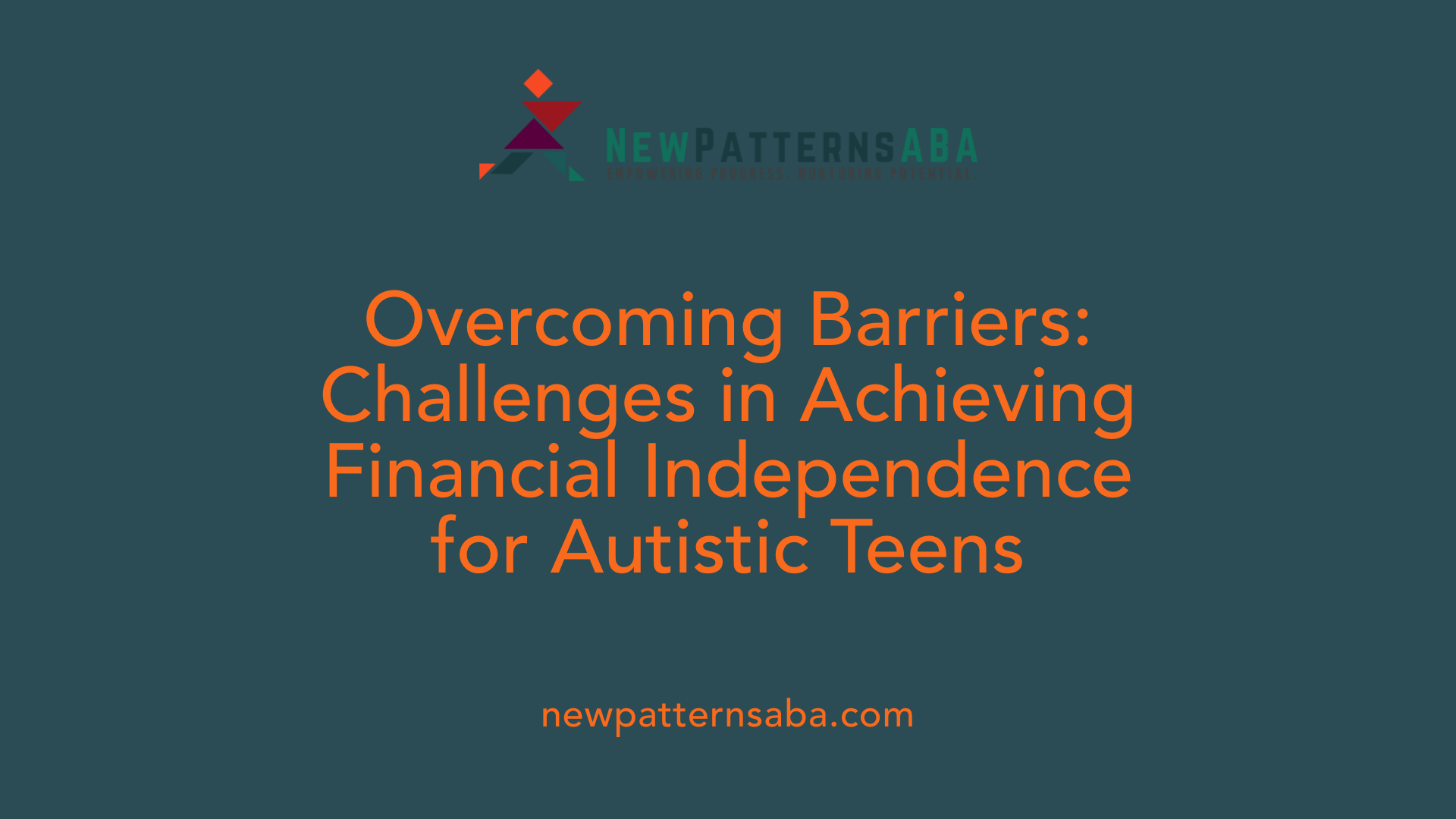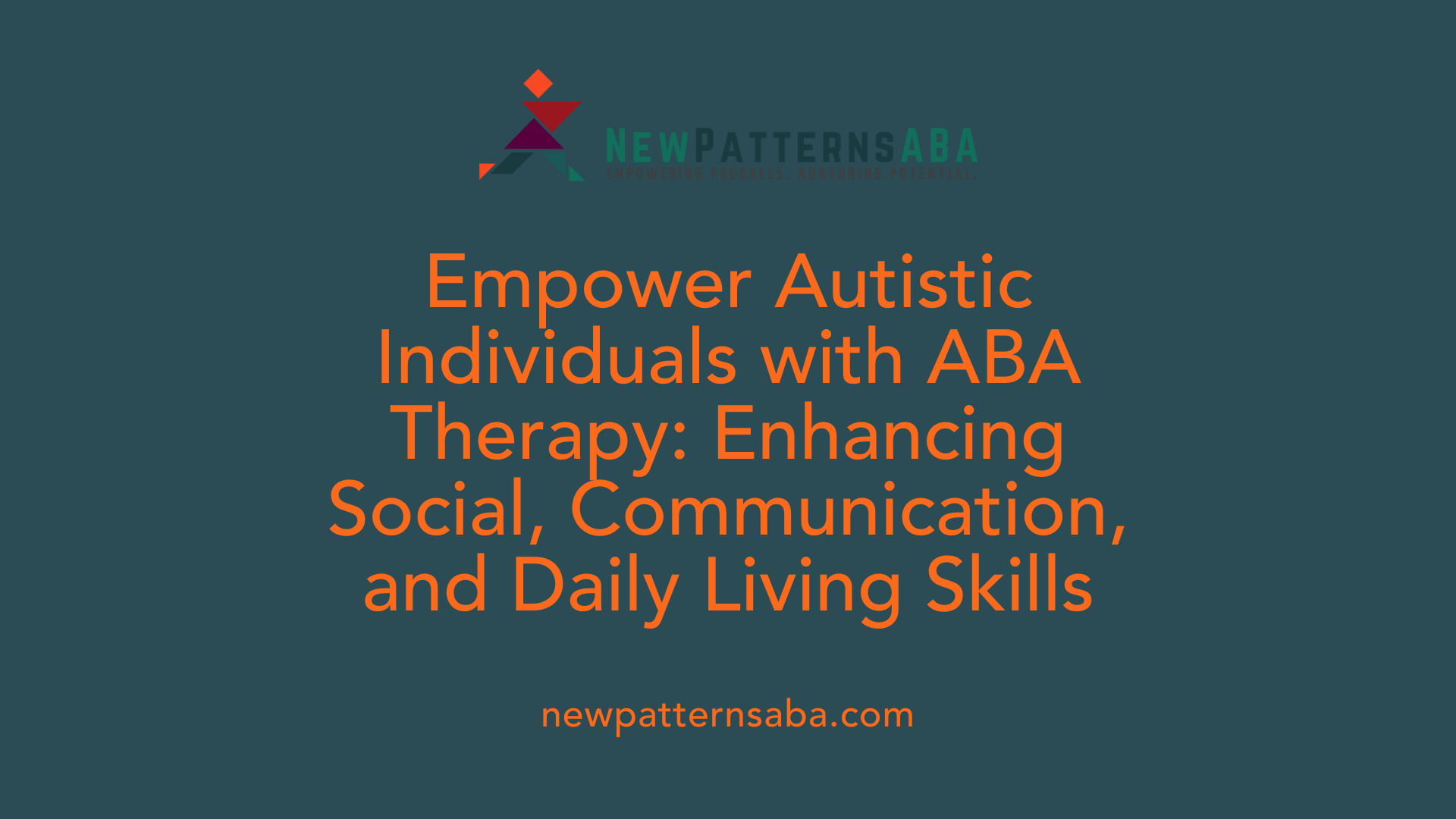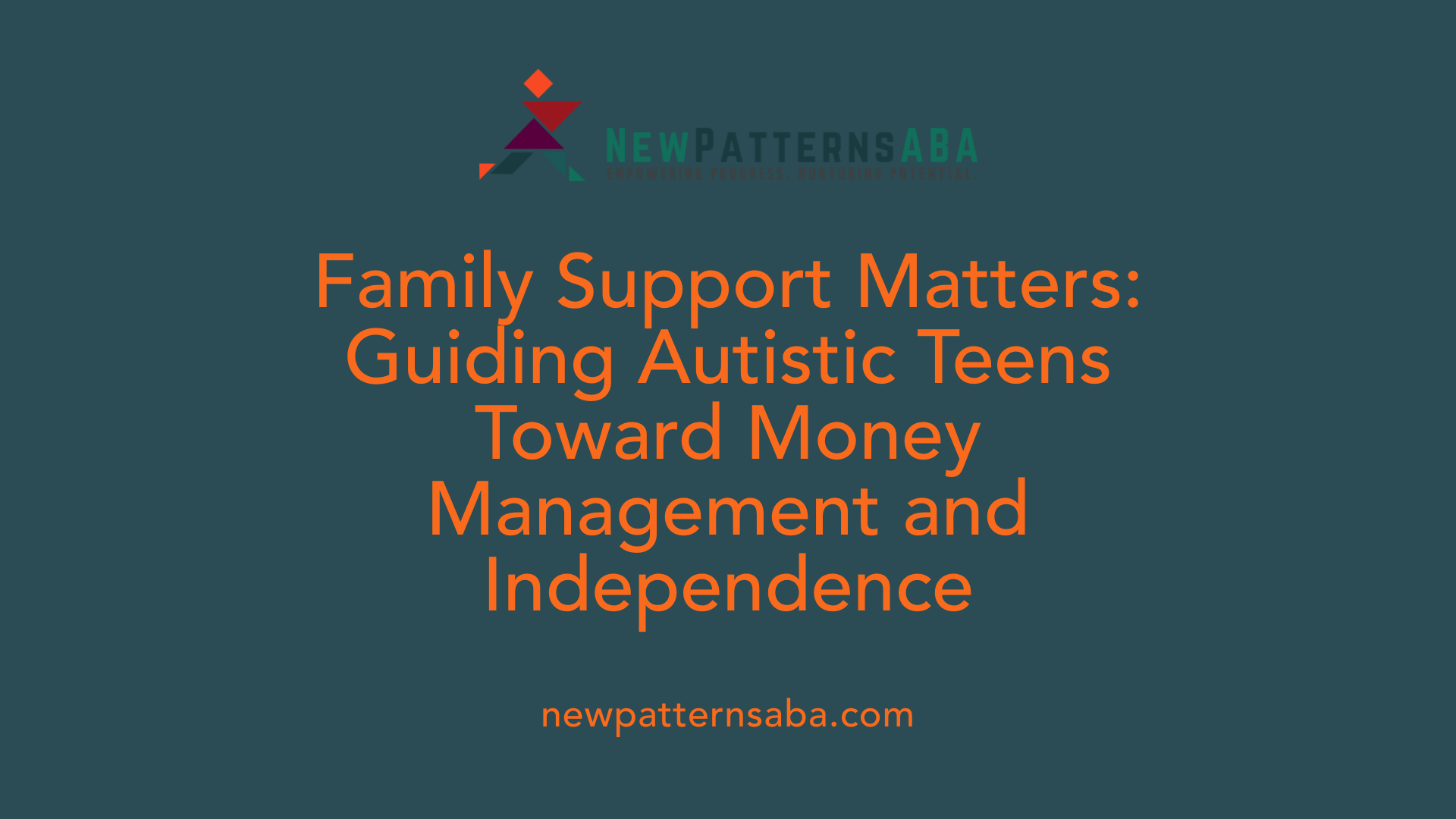Why Financial Literacy Matters for Autistic Teens
Young adults on the autism spectrum face unique challenges in achieving financial independence, largely due to gaps in traditional education and support systems. Developing robust money management skills is a critical component for fostering their independence and success in post-secondary education and employment. This article explores effective strategies, therapies, and resources designed specifically to help autistic teens master essential financial skills and thrive in adult life.
Challenges in Financial Independence for Autistic Teens

What unique obstacles do autistic young adults face in financial independence?
Young adults with Autism Spectrum Disorder (ASD) often struggle to achieve financial independence compared to their peers. This challenge stems from limited exposure to money management education and fewer opportunities to practice these skills.
Financial literacy deficits and educational gaps
Many young adults with ASD are less likely to have their own bank accounts or essential experience with managing money. Only 21 U.S. states require personal finance courses, and typically, high school curricula lack structured financial literacy instruction. Transition services for students with ASD also frequently omit personal finance training, leaving many unprepared for financial responsibilities.
Impact of executive functioning deficits
ASD is often accompanied by executive functioning challenges such as difficulties in planning, organization, and decision-making. These cognitive hurdles make budgeting, timely bill payments, and managing expenses more complicated for autistic youth.
Importance of early financial education
Early involvement in financial education plays a pivotal role in fostering independence. Practical approaches—like encouraging children to pay for small purchases, managing allowances, and setting up bank accounts with support—promote skill-building over time. Experiential learning methods have proven more effective than passive strategies, helping young people with ASD develop confidence and competence in money management.
By addressing these challenges early and comprehensively, caregivers and educators can better support autistic youth in gaining the financial independence necessary for successful transition to adulthood.
The Role of ABA Therapy in Enhancing Life Skills for Autistic Individuals

What is Applied Behavior Analysis (ABA) therapy and how is it used in autism treatment?
Applied Behavior Analysis (ABA) therapy is a scientifically validated method that supports individuals with autism in enhancing their social, communication, and adaptive behaviors. It is based on analyzing behavior through the antecedent-behavior-consequence framework and uses techniques like positive reinforcement and naturalistic teaching. ABA programs are highly individualized and intensive, aiming to promote independence while reducing challenging behaviors.
Who provides ABA therapy and what credentials should professionals have?
ABA therapy is delivered by trained professionals including board-certified behavior analysts (BCBAs) and registered behavior technicians (RBTs). These specialists usually hold master's level education and have supervised experience. They design personalized behavior plans and work closely with families to teach skills that improve the quality of life for autistic individuals.
What are the typical goals and outcomes of ABA therapy for individuals with autism?
The core goals of ABA therapy focus on improving communication, social interactions, self-care skills, and academic abilities. It also aims to reduce problematic behaviors and foster greater independence. Many individuals experience notable progress in language development, cognition, and daily living skills through consistent ABA interventions.
How is progress measured and adjusted during ABA therapy?
Therapists systematically collect data using methods like frequency counting and antecedent-behavior-consequence recordings. This objective data guides continuous evaluation and modification of treatment plans, ensuring that interventions remain effective and tailored to the evolving needs of each individual.
Practical Strategies for Teaching Money Management to Autistic Teens

What effective teaching methods help autistic teens learn money management skills?
Passive learning methods often fall short for autistic students, who benefit more from active, hands-on experiences that engage multiple senses and encourage participation.
Experiential and Active Learning Approaches
Active learning strategies rooted in Experiential Learning Theory (ELT) provide immersive environments where autistic teens can practice financial skills in real-world contexts. These methods encourage problem-solving and decision-making rather than rote memorization, which helps deepen understanding and retention.
Simulation and Gaming Techniques
Innovative simulations and experiential gaming tools have been developed to teach budgeting and financial responsibilities. These interactive programs promote skills like timely bill payments and planning spending, making abstract concepts concrete and accessible.
Use of Visual Aids, Apps, and Online Modules
Visual supports such as charts and step-by-step guides, along with budgeting apps and free online educational modules tailored for young adults with ASD, help simplify complex money management tasks. These resources offer adaptable pace and repetition for individualized learning.
Involving Families in Early Financial Education
Parents and caregivers play a critical role by introducing money concepts early, providing opportunities for children to pay for things at stores, manage allowances, and practice savings. Their support encourages confidence and reinforces learning.
Gradual Increase in Money Responsibility
Gradually increasing financial responsibilities allows teens to develop autonomy without becoming overwhelmed. Starting with small, manageable tasks and expanding to larger ones helps build independence steadily and sustainably.
Creating Supportive Banking Environments for Autistic Young Adults
Experiences Opening Bank Accounts
Young adults with autism spectrum disorder (ASD) often face challenges in becoming financially independent. One common barrier is opening and managing their own bank accounts. This experience can be stressful due to sensory sensitivities and social communication difficulties. However, when supported by trusted helpers, such as family members or familiar bank staff, the process can be much calmer, making financial independence more accessible.
Autism-Friendly Banking Adaptations
To better support autistic individuals, banks are beginning to implement adaptations that acknowledge sensory and social challenges. These include training employees to understand autism-specific needs, establishing quiet areas free from sensory overload, and providing sensory packs containing items to reduce stress. Additionally, environmental modifications like softer lighting or reduced background noise help create a more comfortable atmosphere for customers with ASD.
Benefits of Online Banking for Sensory and Social Challenges
Online banking provides an important alternative that can reduce social and sensory challenges faced in traditional branch settings. For young adults on the spectrum, managing finances online can be more practical and less overwhelming. This digital option enables learning and practicing money management skills remotely, allowing individuals to work at their pace without the pressures of face-to-face interactions.
Examples of Sensory-Friendly Bank Branches
Regions Bank in the United States exemplifies autism-friendly banking by training its staff and designing branch spaces with sensory accommodations. Such efforts include quiet zones and staff trained to recognize and meet the needs of customers with ASD, thereby fostering a welcoming environment that encourages financial independence.
| Aspect | Adaptation/Example | Benefit |
|---|---|---|
| Employee Training | Autism awareness and support | Improves communication and reduces anxiety |
| Quiet Areas | Designated sensory-friendly zones | Decreases sensory overload |
| Sensory Packs | Stress-relief tools provided | Offers coping mechanisms during banking visits |
| Environmental Modifications | Lower lighting, noise reduction | Creates calming atmosphere |
| Online Banking | Remote financial management | Minimizes social pressure and sensory triggers |
These initiatives highlight how thoughtful modifications can empower young adults with ASD to manage their finances confidently and independently.
Comprehensive Support Programs Enhancing Independence in Autistic Youth

What elements make up comprehensive programs that support financial independence for autistic youth?
Independent living programs designed for autistic youth aim to provide a multifaceted approach to fostering independence. These programs typically include education, life skills training, vocational support, social and self-esteem development, and leisure education.
Education in these programs is explicit and experiential, often utilizing assistive technologies to accommodate diverse learning needs. Instruction takes place in natural environments, which help transfer skills like money management directly into real-world contexts.
Life skills training covers crucial areas such as budgeting, cooking, shopping, organization, and executive functions like planning and decision-making. Money management is integrated closely with these skills to reinforce the practical use of financial literacy.
Vocational training offers on-site work experience supported by job coaches who provide scaffolding to develop both specific job skills and essential soft skills. This prepares young adults with autism for employment and financial independence.
Social and self-esteem programs focus on teaching social cues, relationship building, and boosting self-confidence through counseling, peer support, and behavioral strategies. These help autistic youth navigate interpersonal challenges that can affect their independence.
Leisure education encourages making informed recreational choices, promoting community involvement, and fostering social connections to enhance overall well-being and life satisfaction.
Together, these components create a comprehensive support system that not only teaches financial independence but also builds the broader skills necessary for successful adult living.
Family and Caregiver Roles in Building Financial Skills

How can families effectively support autistic teens in developing money management skills?
Families play a pivotal role in fostering financial independence among young adults with autism. Early involvement is crucial; parents can introduce money-related activities such as paying for items at stores or managing an allowance. This hands-on approach helps children understand spending and saving in real-world contexts.
Passing on practical money-saving tips allows teens to learn essential budgeting habits. Encouraging independent practice by giving young adults space to make decisions and manage small sums fosters autonomy, while gradually increasing responsibility ensures they build confidence step-by-step.
Supporting emotional and sensory needs during learning is equally important. For instance, when opening a bank account, having familiar helpers present can reduce anxiety and provide calm reassurance. Sensory-friendly environments or alternatives like online banking can ease social and sensory challenges.
Together with professional support and tailored educational tools such as visual aids and apps, families create a nurturing atmosphere that empowers young adults with autism to develop crucial money management skills for greater independence.
Empowering Autistic Teens Towards Financial Independence
Teaching money skills to autistic teens requires a multifaceted approach blending evidence-based therapies like ABA, experiential learning, supportive banking environments, comprehensive life skills training, and active family involvement. Addressing sensory, executive functioning, and social challenges through tailored strategies enables these young adults to develop confidence and competence in managing their finances. Prioritizing early education and community accommodations lays the foundation for greater independence and improved quality of life, ultimately empowering autistic teens to navigate the financial aspects of adulthood with resilience and skill.
References
- Money Management for Young Adults with Autism
- role of experiential learning in financial literacy among ...
- How to Teach Money Management for Independent Living ...
- 7 Autism Behavior and Communication Strategies
- Life Skills Programs
- Your Complete Guide to Becoming an ABA Therapist
- How to Become an ABA Therapist - School of Education
- Applied Behavior Analysis (ABA)
- Applied Behavior Analysis (ABA)





